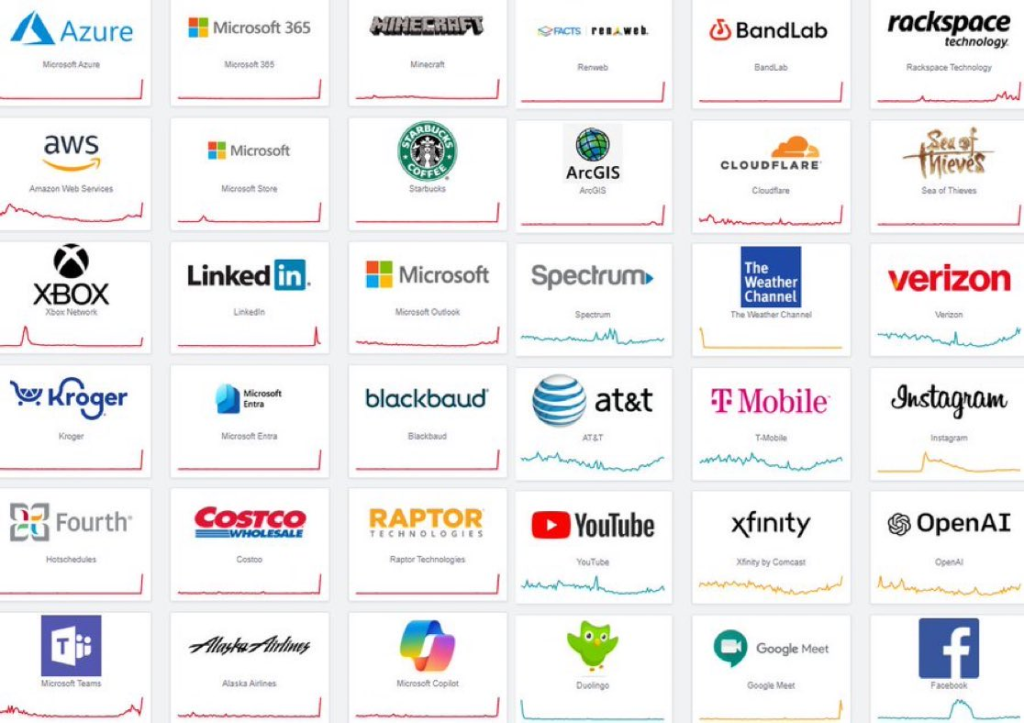
Users Report Microsoft Azure Outage Disrupting Global Services, Highlighting Cloud Fragility
- Identified cause: Microsoft attributed a widespread Azure outage to an "inadvertent configuration change" within its Azure Front Door (AFD) content delivery network.
- Widespread impact: The disruption affected major companies, causing disruptions to websites and key operational systems.
- Recurring Problem: The event occurred just a week after a separate significant AWS cloud disruption, intensifying concerns about the resilience of global cloud infrastructure.
A major Azure outage was reported on Wednesday, October 29, 2025, causing significant disruptions across a wide array of global services. AWS outage reports spiked again for the cloud service on the same day, but the company disputed these reports.
Back-to-Back Outages Raise Cloud Reliability Concerns
Microsoft confirmed the issue stemmed from an "inadvertent configuration change" affecting Azure Front Door, its cloud content delivery service, The Independent reported today, adding that the Microsoft Azure status dashboard showed no active events as of Wednesday evening.
The incident led to service failures for numerous major corporations, including Alaska Airlines, which reported issues with its website and check-in systems, and consumer-facing apps for Starbucks and Costco. The outage also impacted Microsoft's own products, such as Xbox Live and Office 365.
The change affected “both Microsoft services and customer applications dependent on AFD for global content delivery", the tech giant said on the Azure help page.
“AWS is operating normally and this reporting is incorrect. The only resource on the internet that provides accurate data on the availability of our services is the AWS Health Dashboard," the Amazon service told Tom’s Guide.
This event is particularly notable as it follows a major AWS cloud disruption that occurred only a week prior. The consecutive failures of the world's two largest cloud providers have amplified concerns about the stability of the global cloud infrastructure.
Experts such as Nicky Stewart, senior advisor to the Open Cloud Coalition, point to these incidents as evidence of systemic risk, highlighting the economy's heavy dependence on a small number of dominant cloud providers.
When a single technical fault occurs at this scale, the ripple effects can paralyze essential services, from airlines and banking to retail and government operations, demonstrating a critical vulnerability in modern digital systems.
The Push for Greater Cloud Service Reliability
Following the nearly eight-hour disruption, Microsoft stated it had mitigated the issue by rolling back the problematic configuration change and was implementing additional validation controls to prevent future occurrences.
However, the incident has fueled calls for greater diversification and interoperability in the cloud market. Consumer watchdogs and industry analysts are urging businesses to build more resilient systems and for regulators to address the market concentration that makes such large-scale outages possible.
The focus now shifts to improving cloud service reliability to prevent similar widespread economic and operational impacts in the future.
In September, Microsoft announced the disruption of the RaccoonO365 Phishing-as-a-Service platform, seizing 338 domains.










